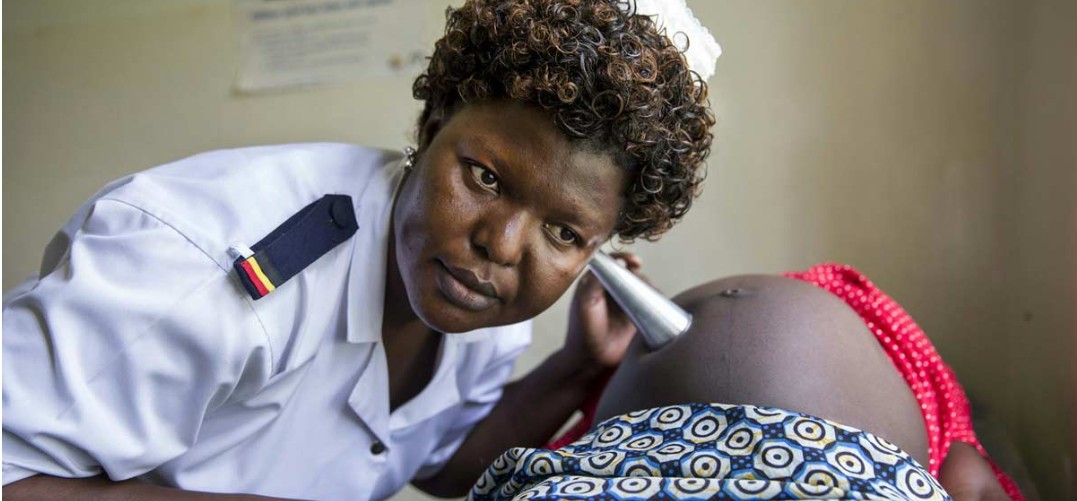Maternal health: MoH approves use of two life-saving drugs in all health facilities

Women across Kenya, especially in remote areas, could soon face fewer risks during childbirth following the government’s approval of two life-saving drugs for use in all public and private health facilities to prevent postpartum bleeding, the leading cause of maternal deaths in the country.
The Ministry of Health (MoH) has given the green light for Tranexamic Acid (TXA) and Heat-Stable Carbetocin (HSC) to be administered at all levels of healthcare, including Level 2 and 3 facilities, which previously lacked access.
This development was announced by the Kenya Obstetrical and Gynaecological Society (KOGS) on Wednesday, June 18.
TXA and HSC are both used to manage excessive bleeding during childbirth, but operate differently.
TXA works by preventing the breakdown of blood clots, while HSC helps the uterus contract to compress blood vessels and stop bleeding.
Until now, these medicines were only allowed in Level 4 hospitals and higher. Their limited availability and frequent stockouts contributed to the country’s high maternal death rates.
KOGS noted that expanding access to these medicines will play a critical role in reducing maternal deaths, especially in underserved areas.
The drugs are not only more affordable but also easier to store compared to other medications used to manage postpartum haemorrhage (PPH).
The approval also means that all health facilities can stock the medicines and that insurance providers in Kenya will now be able to cover treatment costs involving their use.
While the global maternal mortality rate has declined since 2000, Sub-Saharan Africa still accounts for most maternal deaths, according to the World Health Organisation.
In Kenya, the Kenya Demographic and Health Survey reports a maternal mortality rate of 355 deaths per 100,000 live births.
This translates to approximately 5,680 maternal deaths every year, or roughly 16 deaths per day.
The announcement follows a directive by Health Cabinet Secretary Aden Duale on April 24, requiring all regulatory bodies to track and report maternal deaths every three months.
“In three months, if we have a maternal mortality in a facility, let’s say level five, of 10–15 mothers, we must be concerned, and so the regulatory bodies must go and sit with the governors and inform them of where the problem is so that the governors can now also sit down with other heads of county health and the facilities and agree and tell us where the problem is,” Duale said
His concerns were echoed by Tharaka Nithi Governor Muthomi Njuki, who chairs the Council of Governors’ health committee.
Governor Njuki said that both levels of government will work together to remove negligent health workers who contribute to maternal deaths.
The Ministry of Health (MoH) has given the green light for Tranexamic Acid (TXA) and Heat-Stable Carbetocin (HSC) to be administered at all levels of healthcare, including Level 2 and 3 facilities, which previously lacked access.
This development was announced by the Kenya Obstetrical and Gynaecological Society (KOGS) on Wednesday, June 18.
TXA and HSC are both used to manage excessive bleeding during childbirth, but operate differently.
TXA works by preventing the breakdown of blood clots, while HSC helps the uterus contract to compress blood vessels and stop bleeding.
Until now, these medicines were only allowed in Level 4 hospitals and higher. Their limited availability and frequent stockouts contributed to the country’s high maternal death rates.
KOGS noted that expanding access to these medicines will play a critical role in reducing maternal deaths, especially in underserved areas.
The drugs are not only more affordable but also easier to store compared to other medications used to manage postpartum haemorrhage (PPH).
The approval also means that all health facilities can stock the medicines and that insurance providers in Kenya will now be able to cover treatment costs involving their use.
While the global maternal mortality rate has declined since 2000, Sub-Saharan Africa still accounts for most maternal deaths, according to the World Health Organisation.
In Kenya, the Kenya Demographic and Health Survey reports a maternal mortality rate of 355 deaths per 100,000 live births.
This translates to approximately 5,680 maternal deaths every year, or roughly 16 deaths per day.
The announcement follows a directive by Health Cabinet Secretary Aden Duale on April 24, requiring all regulatory bodies to track and report maternal deaths every three months.
“In three months, if we have a maternal mortality in a facility, let’s say level five, of 10–15 mothers, we must be concerned, and so the regulatory bodies must go and sit with the governors and inform them of where the problem is so that the governors can now also sit down with other heads of county health and the facilities and agree and tell us where the problem is,” Duale said
His concerns were echoed by Tharaka Nithi Governor Muthomi Njuki, who chairs the Council of Governors’ health committee.
Governor Njuki said that both levels of government will work together to remove negligent health workers who contribute to maternal deaths.
Maternal Health
pregnancy
teen pregnancies
maternal mortality ratio
unwanted pregnancies
maternal mortality
Let’s Connect
We’re here to listen, support, and engage with you.
Whether it’s feedback, a request, or collaboration — Hon. Jalang’os team welcomes your message.
Office Address
Langata Constituency Office, Nairobi
Call
+254 722 400 737
“Leadership is not about position — it’s about purpose, people, and progress.”